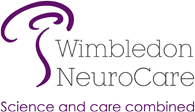Neurophysiology
Neurophysiology is concerned with the investigation of function in the central and peripheral nervous system.

-
EEG
A routine EEG (electroencephalography) is a recording of electrical activity of the brain. The benefit of the test is that it will help your consultant to diagnose if there is a problem and they will then be able to advice any appropriate treatment.
Most EEGs are done to diagnose and monitor seizure disorders. EEGs also can also identify causes of other problems, such as sleep disorders and changes in behaviour. They’re sometimes used to evaluate brain activity after a severe head injury.

-
Ambulatory EEG
An Ambulatory EEG is a prolonged EEG, which is recorded over 24 or 48 hours.
An ambulatory EEG test makes a recording of your brain’s activity over a number of hours or days. EEG wires are placed on your scalp, like in a routine EEG, then attached to a special recorder.
Most often, an Ambulatory EEG is used in the investigation of people who have very frequent seizures (fits) or blackouts, or when these occur at night time.

-
HVT – Home Video Telemetry
Home Video Telemetry is an EEG that records the brainwaves for longer (1-5 days depending on the amount of information needed).
It can be helpful to classify and quantify patient’s events, to pinpoint an area of the brain that is causing seizures or to obtain a complete recording of one night of sleep.
Being at home can sometimes give a better and more complete recording of the patient’s brain patterns.

-
EMG & NCS
The term EMG is often used for both Electromyogram (EMG) and Nerve Conduction Studies (NCS).
An EMG measures the electrical activity of muscle fibres at rest and during various degrees of muscle contraction. A small and fine needle, which is connected to an EMG machine, is inserted into the muscle and the data collected. An NCS measures how well the signals travel across the nerves, nerve roots or at the junction of nerve and muscle.
Small recording electrodes are placed over the muscles supplied by the nerves and activity is monitored. An EMG produces information that is often complementary to the information obtained by NCS.

Call our team if you have a query or to book an appointment











